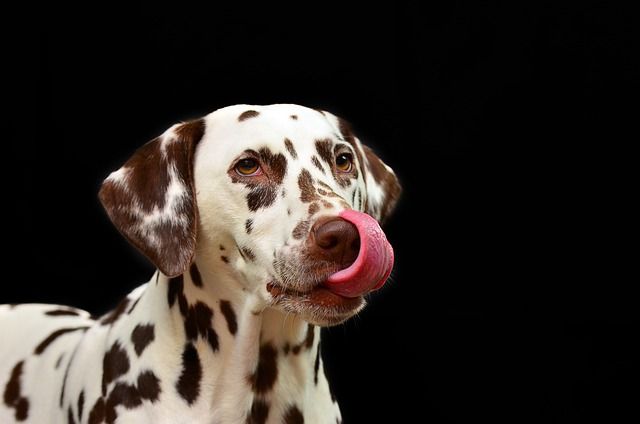
In the first part of this article, we mentioned the unsuitability of corn and soy as source of protein for dogs.
As I mentioned, a large pet food company conducted a study several years ago examining how the type of protein used to feed an adult dog and an elderly dog affected their body composition (muscle vs. fat).
The dogs were fed different amounts of protein such as chicken and corn gluten meal.
Dogs in the first group were fed a chicken-only diet; the rest were fed less chicken and more corn gluten meal. (Wakshlag et al., 2003).
If we compare dogs that were fed 100% chicken and those fed little chicken and a lot of corn, we see the following in the corn-fed dogs:
- Thinness in the tissues of their body
- Increase in body fat
- Drop in blood protein levels which are the universal indicator that a body is well nourished
The same company did another study focusing on decreased protein in the body and muscle, specifically in older dogs. The elderly animals were fed a diet consisting of 32% chicken, 32% chicken and corn gluten meal, or just 16% chicken. (Swanson, Kuzmuk, Schook, & Fahey, 2004).
The same company did another study focusing on protein depletion in the body and muscle, specifically in older dogs. The elderly animals were fed a diet consisting of 32% chicken, 32% chicken with corn gluten meal or just 16% chicken (Swanson, Kuzmuk, Schook & Fahey, 2004).
The pet food company concluded that dog diets that contain primarily animal protein sources provide several benefits, including:
- Help maintain muscle mass.
- Reverse some age-related changes in the skeletal system in older dogs.
- Improve long-term health and well-being in both adult and senior dogs.
Unfortunately, despite this company’s conclusion, although it has been proven for years that animal protein is best for dogs, it does not appear that they have incorporated their research into their dog food formulas. A quick glance at the ingredient lists of several companies’ feeds for adult and senior dogs reveals that they contain corn and other vegetable varieties as the main ingredients.
“Athlete” dogs also thrive on diets based on animal protein.
Dr. Joseph J. Wakshlag, of the Cornell University Veterinary College, studies on how nutrition relates to the activity of dogs, specifically their protein requirements. Most of what is known on the subject is focused exclusively on racing dogs such as Greyhounds or endurance sled dogs such as Huskies.
According to Dr. Wakshlag, there was one study in particular that focused on dietary protein and its unparalleled ability to preserve skeletal muscle integrity, as well as the appropriate total protein, albumin and the condition of red blood cells.
Hematocrit and serum albumin levels tend to drop while the dog is training and running, and adequate protein ingested in the diet can improve the situation.
Studies in endurance and racing dogs suggest that 24-30% of the energy metabolized in the diet of dogs should be highly digestible animal protein such as lamb, beef and chicken.
I have many years of experience in my clinic dedicated exclusively to canine nutrition, and I can assure you that the change is SPECTACULAR when you switch from a diet of even of the best quality kibble to a balanced fresh and natural diet that includes raw meaty bones, muscle meat, a small amount of green vegetables, appropriate nutritional supplements as needed and fresh, clean water constantly available. COMMON SENSE!
GRAIN-FREE OR CEREAL-FREE FOODS, EVEN GLUTEN FREE
One of the great advantages of the Internet is the free and almost instantaneous access to information.
Increasing numbers of people are becoming convinced of how unhealthy and cruel it is to feed their dogs and cats dry, highly industrialized pellets day and night. Isn’t it sad?
In response to this trend, many companies have launched their line of grain-free and cereal-free foods with great success and their sales pitch goes something like this: “Do dogs in the wild eat corn, wheat and rice?”
And I would argue: do dogs in the wild feed on dry, highly industrialized pellets?
What I’m getting at is that you are very likely to see a lot of allergies in dogs, even feeding them these foods, why? For two reasons. Let me explain:
First. Allergy to animal proteins. That food may be free of grains and gluten, but if your dog is allergic to fish, for example, and that food contains fish… Well, you can imagine what the outcome will be.
Second. Many of those foods that say they are “Grain Free” or “Gluten Free” are “contaminated”.
Let me explain: many pet food factories, in order to maximize the profitability of their machinery, manufacture food for different brands. In the morning they make food for owner A, which contains wheat (gluten) in its formula, and in the afternoon for owner B, which is “gluten free”.
You see? As the equipment cleaning is not perfect (many times they are not even cleaned), food A that had wheat (Gluten) will contaminate food B that is supposedly “Gluten Free”.
Bibliography
Swanson, K. S., Kuzmuk, K. N., Schook, L. B., & Fahey, G. C. (2004). Diet affects nutrient digestibility, hematology, and serum chemistry of senior and weaning dogs. Journal of Animal Science, 82(6), 1713–1724. https://doi.org/10.2527/2004.8261713x
Wakshlag, J. J., Barr, S. C., Ordway, G. A., Kallfelz, F. A., Flaherty, C. E., Christensen, B. W., … Davenport, G. M. (2003). Effect of dietary protein on lean body wasting in dogs: correlation between loss of lean mass and markers of proteasome-dependent proteolysis. Journal of Animal Physiology and Animal Nutrition, 87(11–12), 408–420.
Click here and fill out the questionnaire so that we can start working together.
Regards
